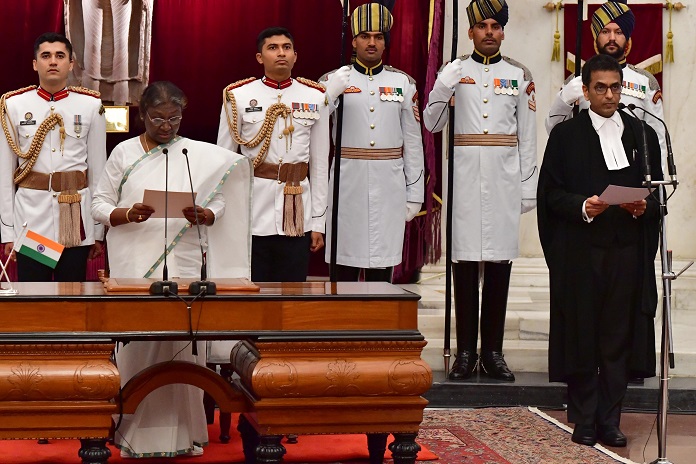 English
English

Justice Dhananjaya Y Chandrachud, who took over as India’s 50th chief justice of India, has played a pivotal role in digitisation of the judiciary and been part of benches that delivered landmark verdicts on issues such as the Ayodhya land dispute, Section 377 and right to privacy. Read more on Dynamite News:

New Delhi: Justice Dhananjaya Y Chandrachud, who took over as India’s 50th chief justice of India, has played a pivotal role in digitisation of the judiciary and been part of benches that delivered landmark verdicts on issues such as the Ayodhya land dispute, Section 377 and right to privacy.
The apex court’s most senior judge follows in the footsteps of his father and former chief justice of India, the late Y V Chandrachud, who was at the helm of the judiciary from February 22, 1978 to July 11, 1985 and was India’s longest serving CJI. This is the first instance of a father and son occupying the highest seat of justice.
CJI Chandrachud, often referred to as DYC in legal circles, was sworn in by President Droupadi Murmu. He takes over from Uday Umesh Lalit, who recommended him as his successor to the Centre on October 11. Unlike his predecessor who served for 74 days, India’s new CJI will be in office for two years till November 10, 2024. Supreme Court judges retire at the age of 65.
Justice Chandrachud, born on November 11, 1959 and considered a Delhi University product who studied in St Stephen’s College and the Campus Law Centre before going to Harvard, was elevated to the top court on May 13, 2016.
Counted as a judge who enriched the ‘verdict docket’ of the apex court, Justice Chandrachud is viewed as sharp, articulate and forward looking. Expected to advance judicial frontiers, he was a member of benches that delivered judgements on decriminalising part of Section 377 of the Indian Penal Code and the entry of women in Sabarimala. (PTI)
No related posts found.